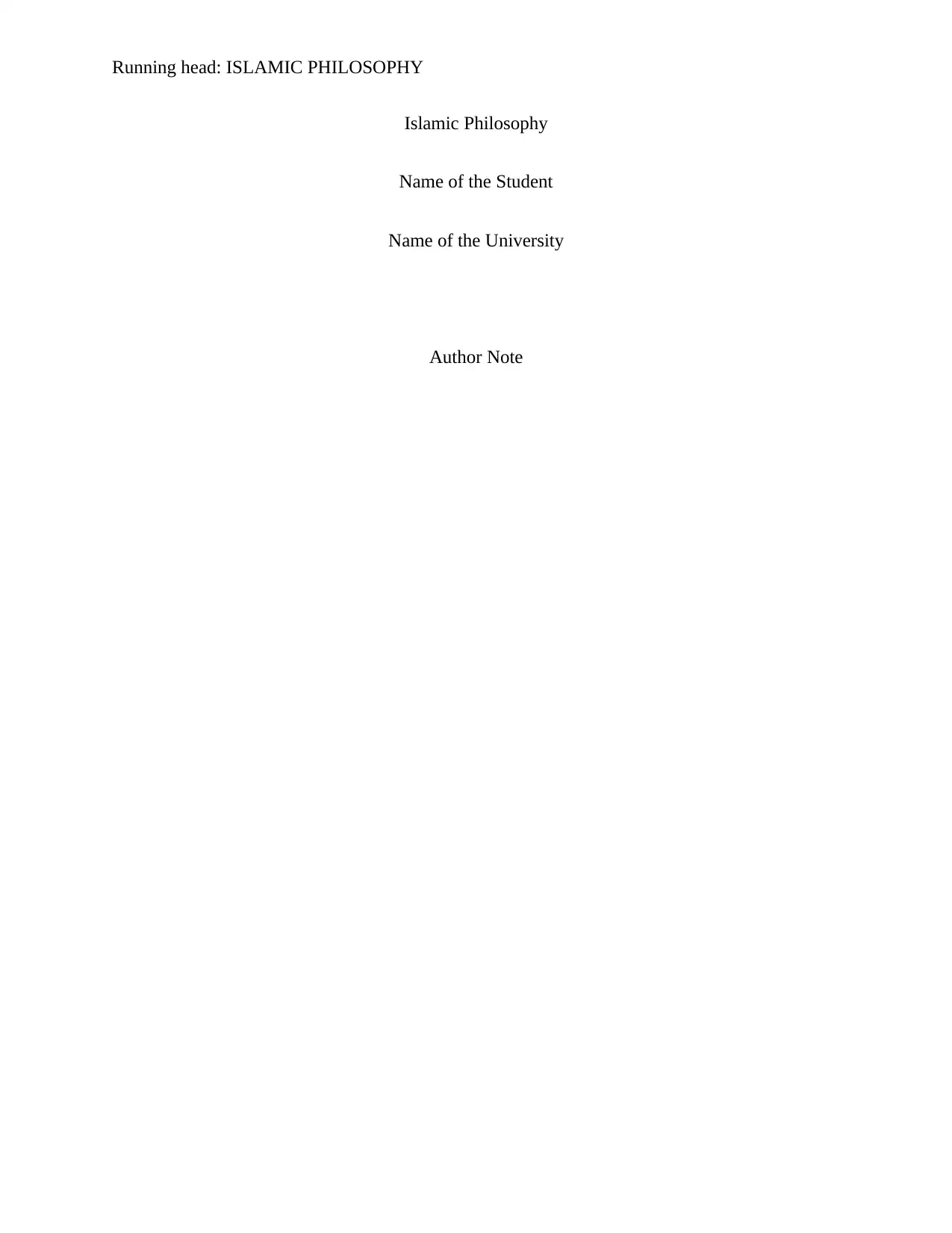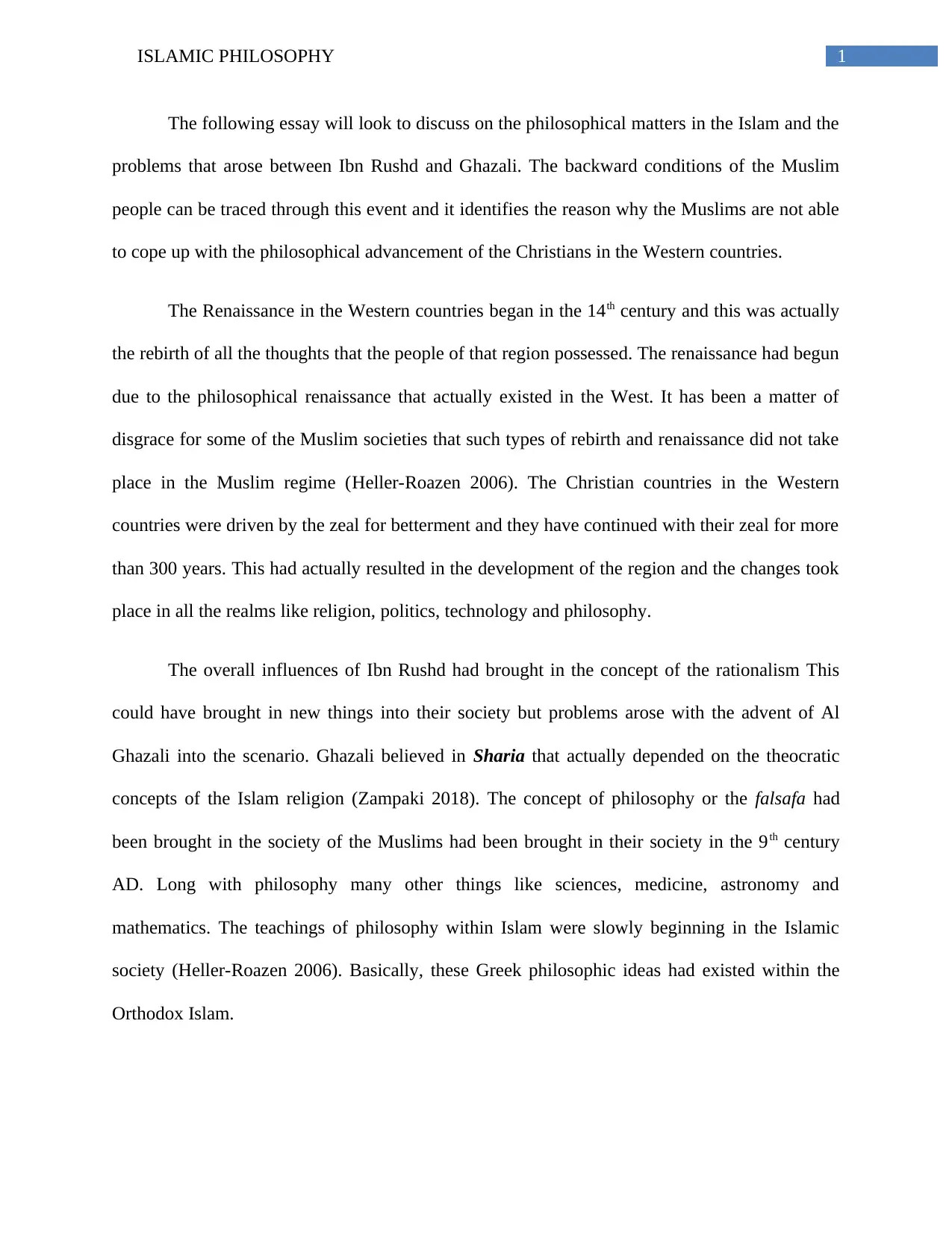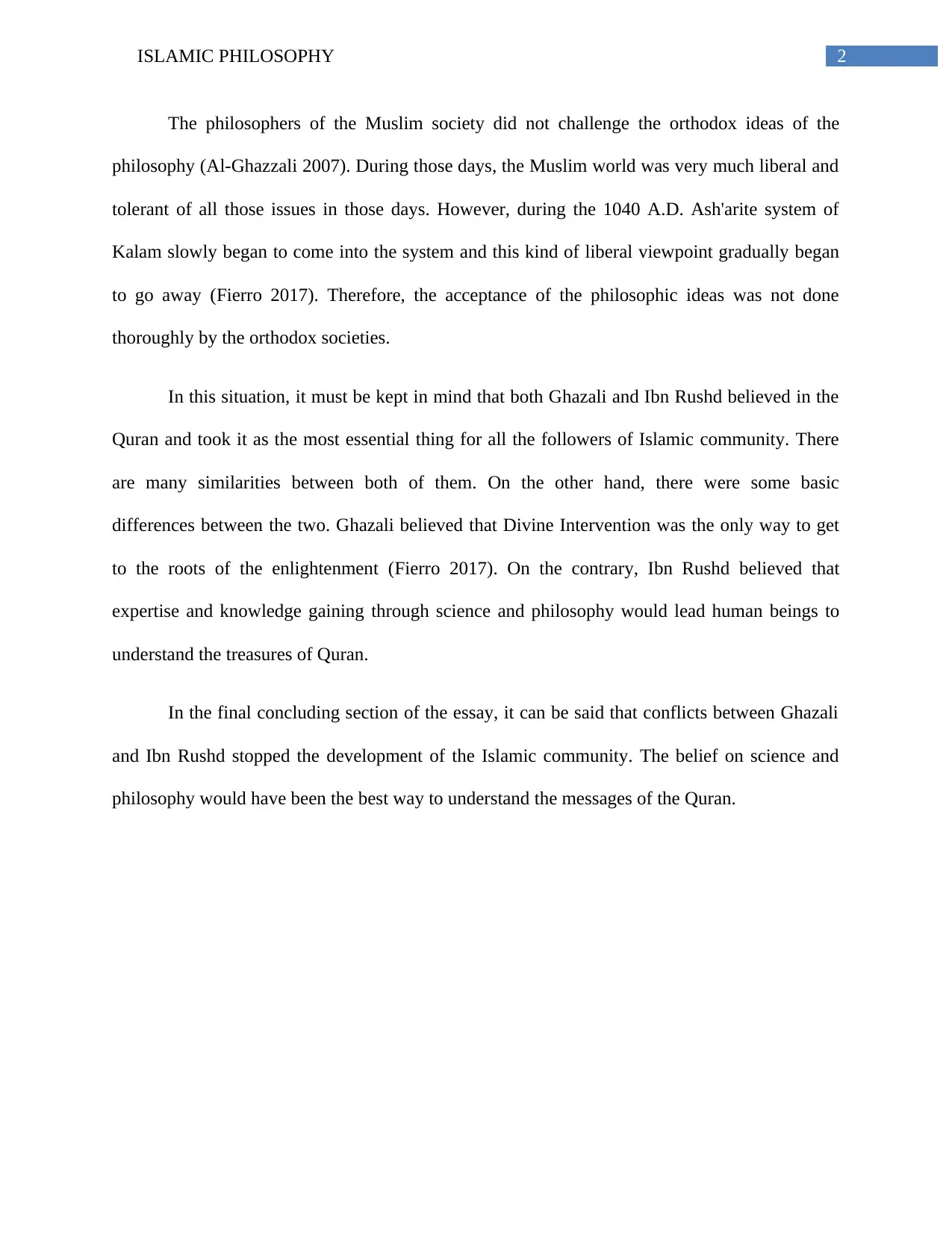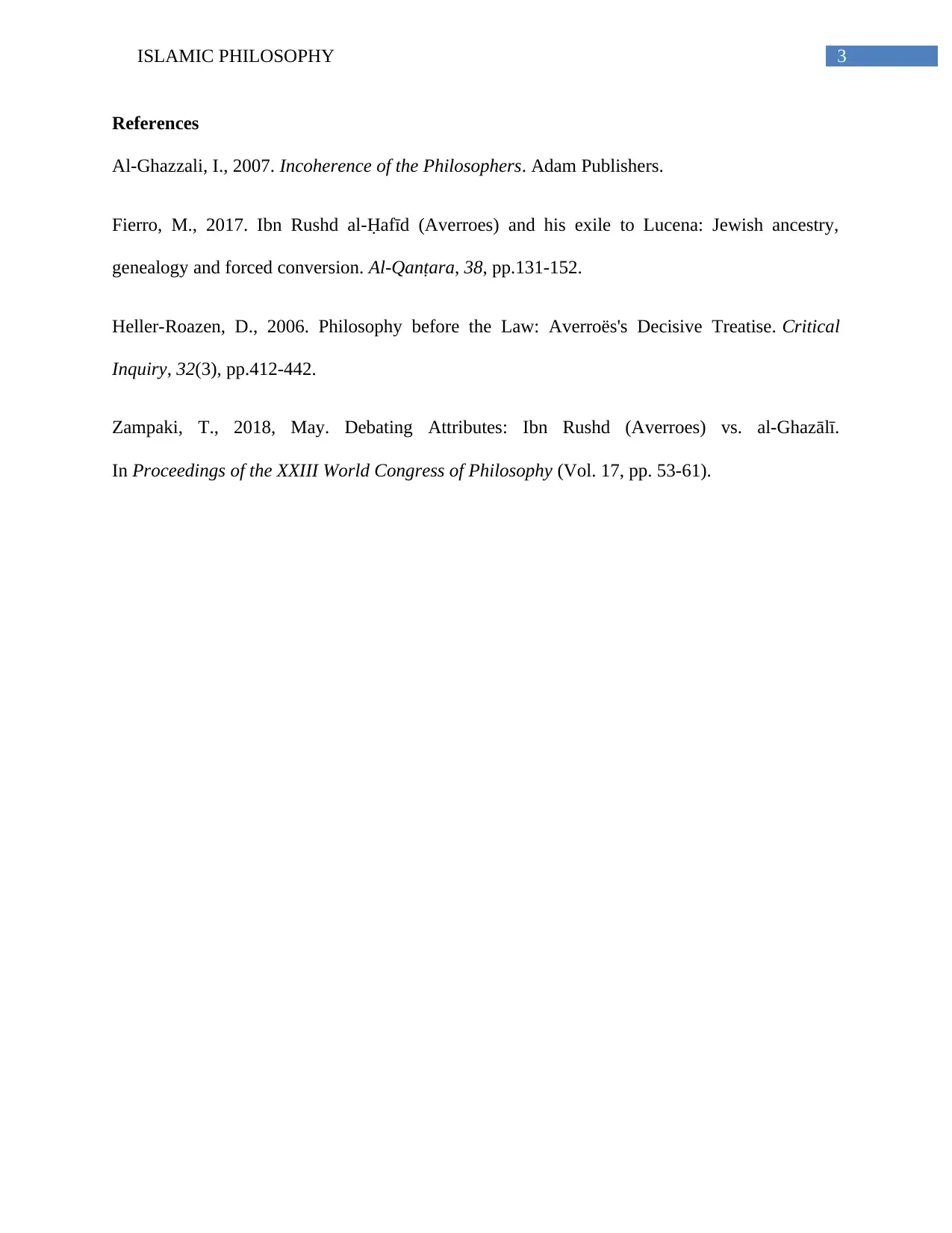Islamic Philosophy: A Study on Ibn Rushd and Al-Ghazali's Conflict
VerifiedAdded on 2022/08/28
|4
|706
|26
Essay
AI Summary
This essay delves into the philosophical matters within Islam, focusing on the critical debate between Ibn Rushd and Al-Ghazali. It explores the differing perspectives on rationalism versus theocratic principles rooted in Sharia law, and how these conflicts may have hindered the philosophical advancement within Muslim societies, particularly in comparison to the Renaissance in the West. The essay highlights Ghazali's emphasis on Divine Intervention and contrasts it with Ibn Rushd's belief in knowledge gained through science and philosophy as a means to understand the Quran. The essay also examines the historical context, including the introduction of Greek philosophical ideas and the rise of the Ash'arite system. Ultimately, the essay concludes that the conflict between these two thinkers played a significant role in the development of Islamic intellectual thought.
1 out of 4





![[object Object]](/_next/static/media/star-bottom.7253800d.svg)